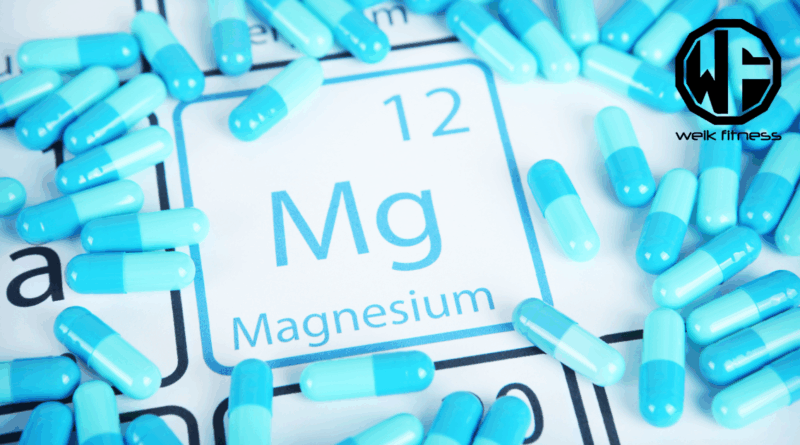Magnesium Glycinate vs. Magnesium Citrate: Which Is Best?
You’re scrolling through supplement aisles or browsing online, trying to figure out which magnesium to buy. One says “glycinate.” Another says “citrate.” But between magnesium glycinate and magnesium citrate, which is the best option?
Both promise to boost your magnesium levels, but they work differently in your body.
Here’s what you need to know: According to a 2025 report, roughly 48% of Americans don’t get enough magnesium from food alone. That makes choosing the right supplement more important than ever.
Magnesium glycinate is your go-to for calming anxiety and improving sleep without upsetting your stomach. Magnesium citrate, on the other hand, acts fast to relieve constipation and quickly raise magnesium levels when you’re deficient.
RELATED: The Benefits of Magnesium Supplements
This guide breaks down the real differences between these two popular forms. You’ll learn which one fits your specific health goals, how they’re absorbed, and what the science actually says about their benefits.
Disclaimer: This article is for informational purposes only and is not meant to treat or diagnose any condition. It is recommended that you speak with your doctor before starting any exercise program, changing your daily nutrition, or adding any supplements to your regimen.
Table of contents
- Key Takeaways
- Key Differences Between Magnesium Glycinate and Magnesium Citrate
- Benefits of Magnesium Glycinate
- Benefits of Magnesium Citrate
- What Are the Potential Side Effects of Magnesium Glycinate and Magnesium Citrate?
- Which Form is Better for Specific Needs?
- What Are the Recommended Dosages for Magnesium Glycinate and Magnesium Citrate?
- The Choice of Magnesium Glycinate vs Magnesium Citrate is Yours
- FAQs
Key Takeaways
- Magnesium glycinate is best for anxiety, sleep, and sensitive stomachs, with recommended daily doses around 350 mg and minimal digestive side effects.
- Magnesium citrate absorbs quickly, acts as a mild laxative for constipation relief within 30 minutes to 6 hours, and is often taken in doses of 6.5 to 10 fluid ounces.
- Both forms have high bioavailability, but glycinate is preferred for long-term use or chronic health conditions, while citrate is chosen for rapid magnesium boosts and digestive support.
- Exceeding 350 mg per day can cause diarrhea, nausea, or high magnesium levels, especially in people with kidney disease or those taking certain medications.
- Consult a healthcare provider before starting supplements, as magnesium needs and safe dosages depend on age, sex, health status, and possible medication interactions.

Key Differences Between Magnesium Glycinate and Magnesium Citrate
You’re looking at two of the most popular magnesium supplements on the market. The global magnesium supplement market was valued at $4.37 billion in 2024 and is projected to reach $8.94 billion by 2034, driven largely by consumer demand for glycinate and citrate forms.
Magnesium glycinate and magnesium citrate work differently in your body. Each form offers unique benefits, absorption rates, and uses that can help you choose what fits best for your health goals and daily routine.
What are the composition and structure differences of these sources of magnesium?
Magnesium glycinate is a chelated magnesium. It forms when elemental magnesium bonds with glycine, an amino acid your body uses for building proteins.
Magnesium citrate combines magnesium with citric acid, making it a magnesium salt. This structural difference changes how each works in your body.
Chelated forms like glycinate tend to be gentle on the stomach and better absorbed.
Research shows that organic magnesium compounds like glycinate are generally more bioavailable than inorganic forms. Citrate’s bond with citric acid helps it pull water into the gut, giving it a natural laxative effect that works within 30 minutes to 6 hours.
Both types come in capsules or powder, but their unique chemical makeups explain why they work so differently for boosting magnesium levels or easing constipation.
How do absorption and bioavailability compare between magnesium supplements?
Absorption makes the difference between a supplement that works and one that doesn’t. The magnesium glycinate market alone reached $1.2 billion in 2024, reflecting growing consumer awareness of bioavailability.
Check out some of the key differences below.
| Aspect | Magnesium Glycinate | Magnesium Citrate |
|---|---|---|
| Absorption Rate | High absorption, chelated with glycine. Optimal for those with low absorption. Favored for sensitive digestion. | High absorption, bonded with citric acid. Fast-acting for magnesium deficiency. Often used for quick results. |
| Bioavailability | Considered highly bioavailable. Less likely to cause stomach upset. Suitable for long-term use, especially with diabetes or IBD. | Bioavailability also high. Efficient for raising magnesium levels. Especially effective for digestive health. |
| Research Insights | Few head-to-head human studies. Chosen for minimal GI side effects. | A 2017 study found magnesium citrate absorption at about 60% when taken with food. Solid track record for constipation relief. |
| Common Uses | Anxiety, sleep, muscle recovery. Reducing stress, gentle on stomach. | Digestive support, magnesium deficiency. Rapid response needed. |
| Best For | Those with absorption issues. People managing chronic health conditions. | Athletes, active lifestyles. Immediate magnesium boost, constipation. |
For comparison, magnesium oxide has a fractional absorption rate of only 4%, making citrate and glycinate far superior choices for most people.
What are the primary uses and benefits of each?
Both forms are popular, but they target different needs. Here’s what each one does best:
- Magnesium glycinate is often used to restore magnesium levels in people with deficiencies, making it a top choice for those who don’t get enough from food.
- This form supports anxiety reduction, sleep quality, and bone health, offering extra help if you want to manage stress or get better rest. A 2024 systematic review examining the effects of supplemental magnesium found that most trials demonstrated positive results for sleep quality and anxiety across diverse populations.
- Healthcare professionals often recommend magnesium glycinate for people with sensitive stomachs, since it’s gentle and less likely to cause diarrhea or digestive upset.
- Magnesium citrate is commonly used as a short-term solution for constipation relief, as it helps draw water into your intestines and get things moving within 30 minutes to 6 hours.
- For those dealing with rapid magnesium deficiency, citrate offers fast absorption, making it effective for raising levels quickly.
- Athletes or active people may take magnesium citrate to reduce muscle cramps and soreness after intense workouts or long runs.
- Both forms help increase your daily magnesium intake, but each targets specific needs. Glycinate for calmness and sleep, citrate for digestion and quick absorption.
- Magnesium citrate also shows benefits in easing migraines and leg cramps if you experience these issues alongside low magnesium levels. A 2025 review in Nutrients noted that supplementing with 600 mg of magnesium citrate daily may reduce the frequency of migraine attacks.
Benefits of Magnesium Glycinate
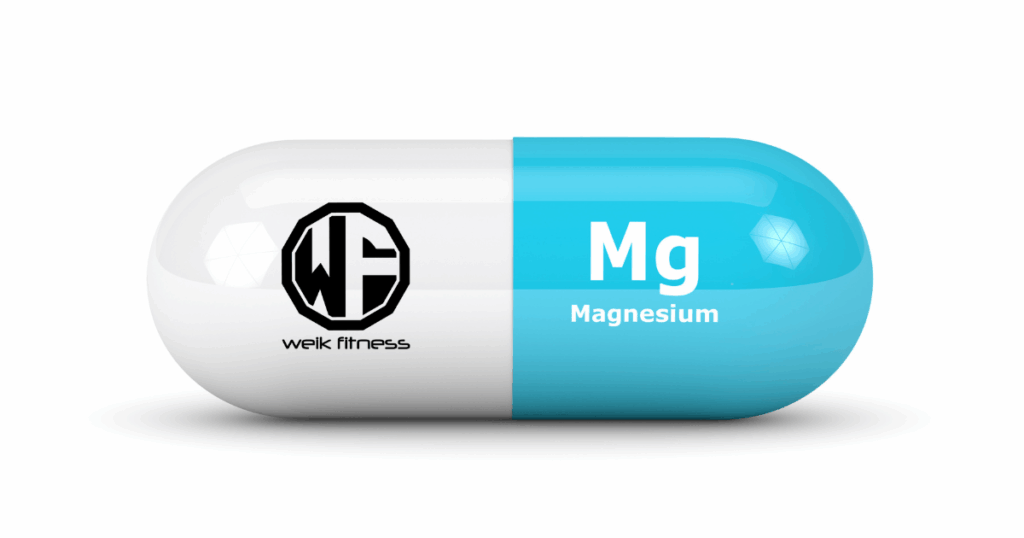
Magnesium glycinate is a type of magnesium that many people take as a dietary supplement, especially for its calming effects.
This form has grown rapidly in popularity. If you want a gentle, bioavailable option that may help you feel better, this may be your best option. But let’s continue.
How does magnesium glycinate support anxiety and sleep?
Taking magnesium glycinate as a dietary supplement helps manage mild anxiety and promotes better sleep quality. This type is gentle on your stomach and less likely to cause digestive side effects, even for people with sensitive digestion.
Taken before bedtime, this form encourages body relaxation, making it easier to fall asleep and stay asleep through the night.
Research suggests that you may notice improved anxiety management and restful sleep after using magnesium glycinate for 6 to 12 weeks. A 2012 double-blind study in 46 elderly adults with insomnia found that 500 mg of magnesium daily for 8 weeks significantly increased sleep time and efficiency while decreasing insomnia severity.
Most health experts recommend taking between 300 mg to 400 mg per day in capsule form. Always check with a healthcare provider before starting supplemental magnesium for anxiety or sleep support, since too much can cause diarrhea, stomach aches, or fatigue.
How does this type of magnesium help with muscle relaxation and stress relief?
Magnesium glycinate supports your muscular system by calming nerve signals and easing tension.
This supplement may help with muscle relaxation after tough workouts, especially at a dose of 350 mg. Many athletes use it to support exercise recovery and reduce soreness or cramps. If you suffer from PMS, magnesium glycinate may ease symptoms like painful muscle contractions.
Stress relief comes as this form helps balance your nervous system. Magnesium is an essential mineral for proper muscle and nerve function. Regular supplementation can lower the risk of abnormal heart rhythms and pain spikes caused by stress.
People who take a magnesium supplement often report better sleep, less anxiety, and smoother recovery after physical activity because their muscles relax more effectively.
Magnesium glycinate is gentle on your stomach, making it suitable for sensitive digestion while still boosting your levels of this key nutrient.
Why is magnesium glycinate gentle on the stomach?
You get fewer stomach issues with magnesium glycinate because of its special bond between magnesium and glycine.
This combination is milder for your digestive tract than forms like magnesium citrate or magnesium oxide. Clinical data from brands like Pure Encapsulations and Thorne show that many people can take magnesium glycinate without problems like diarrhea, bloating, or nausea.
This form of oral magnesium supports smooth muscle relaxation in your gut. It works through specific pathways but doesn’t speed up gut contractions too much.
For best results and even less chance of stomach upset, take magnesium glycinate with food. Many health enthusiasts choose this type to increase their levels without unwanted intestinal side effects, perfect if you want reliable supplementation while avoiding discomfort.
Recommended options for magnesium glycinate
Benefits of Magnesium Citrate
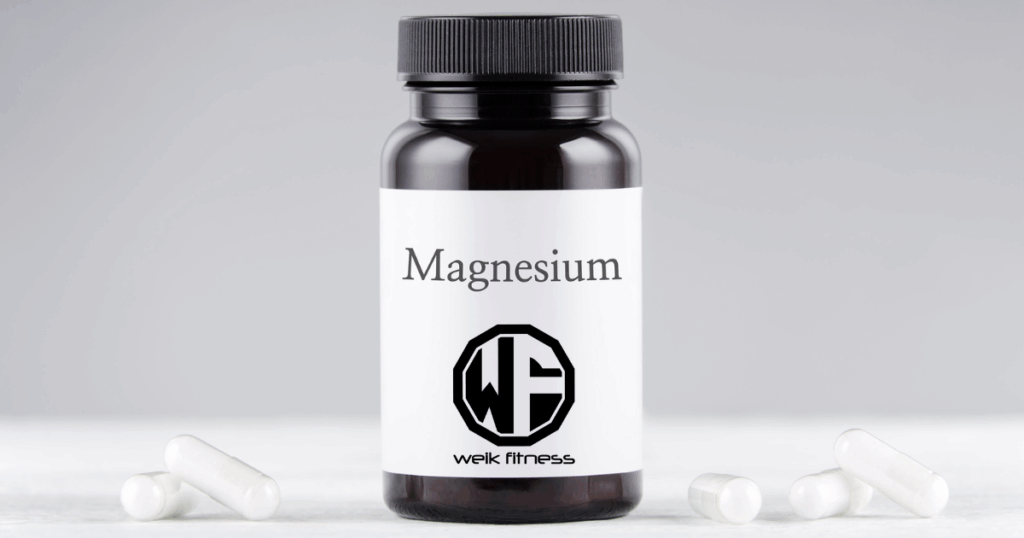
Magnesium citrate is often chosen to boost magnesium levels quickly and support healthy digestion. It offers fast relief for specific needs.
Is this version of magnesium supplements best for you? Let’s dive deeper.
How does magnesium citrate aid digestive health and relieve constipation?
Magnesium citrate can help you ease constipation fast. It works by relaxing your bowels and pulling water into the intestines, which softens your stool and makes it easier to pass.
You may feel relief in as little as 30 minutes or up to 6 hours after you take it.
For adults, doctors often recommend 6.5 to 10 fluid ounces per day, with each ounce containing about 1,745 mg of magnesium. Many people use magnesium citrate supplements when they need quick digestive support or struggle with sluggish bowels.
If you try magnesium citrate for constipation, you might notice more bowel movements and softer stools. Too much can cause watery stools or abdominal cramps, so always pay attention to your body’s signals.
Drinking extra water helps avoid dehydration, since pulling water into the gut is how this magnesium compound works best. Speak with a healthcare provider for dosing, especially if you have ongoing digestive issues or take other medications.
Why is it effective for rapid absorption in magnesium deficiency?
Magnesium citrate stands out among different types of magnesium compounds for its high bioavailability.
Your body absorbs this form much faster than forms like magnesium oxide or sulfate. Healthcare professionals often recommend supplementing with magnesium citrate if you have acute symptoms or sudden drops in your magnesium levels.
This rapid absorption can help raise magnesium levels quickly, especially for people facing deficiency from malnutrition, certain medications, or kidney issues. Research shows that magnesium citrate has significantly higher bioavailability compared to magnesium oxide, which has a fractional absorption rate of only 4%.
Many people take magnesium citrate supplements because they want to boost their amount of magnesium fast and easily. This compound works well for short-term interventions and is commonly used to treat constipation or muscle cramps caused by low levels of the mineral.
What are the common uses of magnesium citrate in supplements?
You often find magnesium citrate in supplements made to boost your magnesium levels. Many people pick this form because it’s absorbed well and acts fast, especially if you have a deficiency.
Relief from constipation stands out as one of its most common uses, since it works as a gentle laxative. Athletes use magnesium citrate for muscle soreness or leg cramps.
Some take it for migraines or to support digestive health, especially if they have gut issues or sensitive stomachs. People also use these supplements for calming effects, like reducing mild anxiety, though research continues in that area.
What Are the Potential Side Effects of Magnesium Glycinate and Magnesium Citrate?
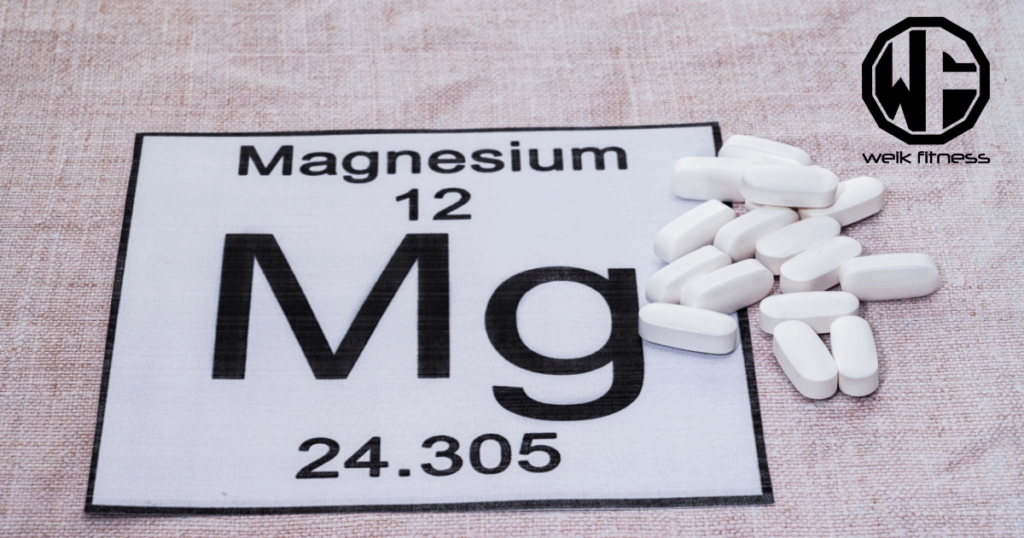
Magnesium glycinate is gentle on the stomach but can still lead to diarrhea, mild cramping, or abdominal pain. This form is less likely to upset your gut compared to magnesium citrate.
Magnesium citrate is typically used for constipation and may cause loose stools or even abdominal discomfort at higher doses, especially if you increase your magnesium too quickly. Both forms might trigger bloating, nausea, or in rare cases vomiting.
Consuming too much of either supplement may push your magnesium levels too high. Signs include low blood pressure, facial flushing, muscle weakness, irregular heartbeat, and more severe nausea or vomiting.
Individuals with kidney disease should take special care since their bodies struggle to remove excess minerals.
Healthy kidneys help avoid buildup, so most people face little risk unless they take very large amounts of oral magnesium supplementation. The tolerable upper intake level for magnesium from supplements is 350 mg per day for adults.
Many medications interact with these two popular magnesium supplements. Always consult a healthcare provider before use if taking other prescriptions or managing health conditions like renal problems.
Recommended options for magnesium citrate
Which Form is Better for Specific Needs?
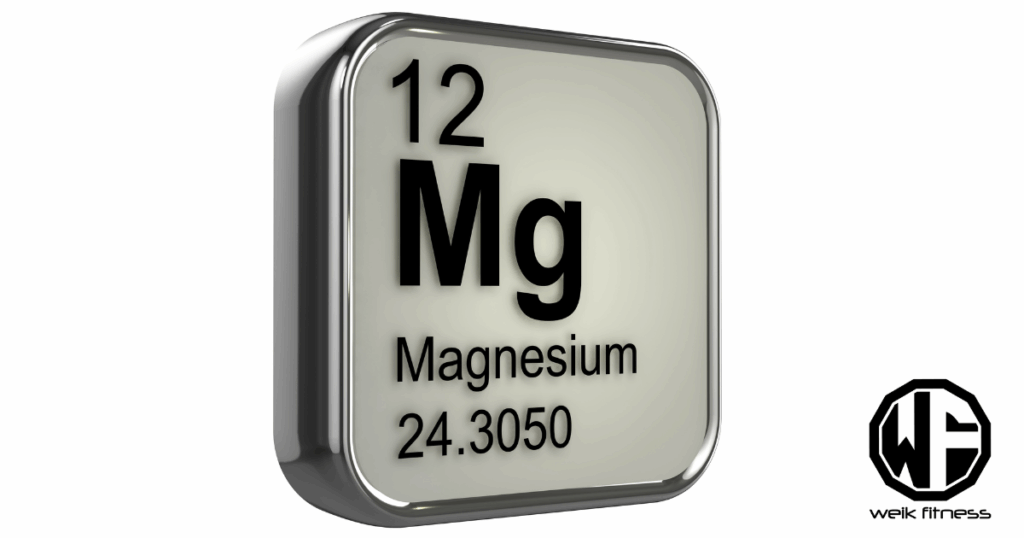
Choosing between magnesium glycinate and magnesium citrate can depend on what your body needs, which effects you want, and how you respond to different sources of magnesium.
Different situations call for different forms. Let’s see how each fits your personal health goals and lifestyle.
Which form is best for managing anxiety and improving sleep?
Magnesium glycinate is often the top choice for managing anxiety and improving sleep.
You may notice its calming effects after taking it for 6 to 12 weeks, according to research on magnesium supplementation on subjective anxiety and insomnia. Most people take between 300 mg and 400 mg per day to support better sleep and reduce symptoms of stress or anxiety.
This form of magnesium is gentle on the stomach and carries a lower risk of digestive side effects than magnesium citrate or other forms. A 2024 study showed that magnesium supplements demonstrated at least modest positive results for sleep quality and anxiety across diverse populations, with glycinate being particularly well-tolerated.
Magnesium citrate is one of the two forms most sold, but its main use is for constipation relief, not sleep support.
Magnesium glycinate is found in many supplements designed for calmness and rest, supporting bone health and helping with premenstrual symptoms (PMS) too. Research suggests that magnesium glycinate or magnesium bisglycinate can also lower the risk of stroke, heart disease, and type 2 diabetes over time.
If your main goal is to improve sleep and decrease anxiety, magnesium glycinate is widely preferred by health and fitness professionals and supported by clinical evidence.
Which form is best for digestion and relieving constipation?
For digestive relief and constipation, magnesium citrate is often the best choice.

It acts as a mild laxative and pulls water into your intestines. This action softens stools and makes bowel movements easier. You will usually feel results within 30 minutes to 6 hours after taking it.
RELATED: Backed Up? 3 Strategies to Try as a Natural Constipation Remedy
Most people find relief by using between 6.5 and 10 fluid ounces in one day, as suggested by health experts. Taking magnesium citrate for constipation works well because it supports gut health and clears blockages gently compared to harsher remedies.
Use it carefully, because too much may lead to diarrhea or dehydration.
Magnesium glycinate, on the other hand, is gentle on your stomach but does not help with constipation like citrate does. For anyone who wants fast, effective help with digestion, magnesium citrate is also one of the most bioavailable forms of magnesium supplements on the market today.
What Are the Recommended Dosages for Magnesium Glycinate and Magnesium Citrate?
Finding the right dosage for magnesium glycinate or magnesium citrate can boost your health and energy. Use this guide to match your needs with expert data and safety advice.
- The recommended dietary allowance (RDA) for magnesium is 400-420 mg per day for adult males and 310-320 mg per day for adult females. This range depends on your age and sex.
- If you are a female aged 14-18, the RDA is 360 mg. For males in this group, it rises to 410 mg.
- Adults aged 19-30 need 310 mg (females) or 400 mg (males) daily. Over age 31, aim for 320 mg (females) or 420 mg (males).
- A typical dosage of magnesium glycinate sits at about 350 mg per day, which is gentle on your stomach and fits within the safe supplement range.
- Magnesium citrate is often chosen for digestive health. Adults may take 6.5 to 10 fluid ounces of liquid magnesium citrate for constipation relief, each ounce containing 1,745 mg.
- If you want to take magnesium supplements daily, less than 350 mg from supplements is considered safe for most adults, unless pregnant, breastfeeding, or managing heart or kidney conditions.
- Consult a healthcare professional before increasing your intake, especially if you have health issues or take other medicines that could raise your risk of magnesium toxicity.
- Food sources of magnesium include leafy greens, whole grains, nuts, and seeds. Combining supplements with these foods can help maintain healthy magnesium levels in the body.
- Pure Encapsulations offers a capsule form with 90 counts. Always check the label on your chosen product to confirm both unit count and dosage instructions.
- The best dose may change with your goals, whether managing magnesium deficiencies, easing muscle cramps, or supporting sleep. Following these guidelines and watching for side effects helps ensure steady progress.
The Choice of Magnesium Glycinate vs Magnesium Citrate is Yours
Choosing between magnesium glycinate and magnesium citrate depends on your health goals.
If you want better sleep, less anxiety, or gentle support for your stomach, magnesium glycinate may be your top pick. Magnesium citrate may work fast for digestion and is great if you need help with constipation.
Each form supports your body in different ways, so match your needs to the right kind of magnesium supplement. Talk with your healthcare provider to boost your magnesium levels safely and get the benefits you want.
RELATED: Magnesium and Insulin for Better Blood Sugar Management
FAQs
Magnesium glycinate is a highly absorbed form bonded with the calming amino acid glycine, while magnesium citrate is bound to citric acid, which gives it a mild osmotic laxative effect.
For raising your magnesium levels, magnesium glycinate is better absorbed than magnesium citrate due to its chelated form, making it more effective for correcting a deficiency without digestive upset. Magnesium citrate may act faster for constipation relief, but is less ideal for systemic absorption.
The recommended daily amount of magnesium for adults is 310-420 mg, and it’s crucial to check for “elemental magnesium” on the label, not the total compound weight. Many magnesium supplements are available, but a 500 mg pill might only provide 75-80 mg of actual elemental magnesium.
Magnesium is essential for muscle function, and magnesium glycinate is also used for anxiety because glycine can increase levels of the calming neurotransmitter GABA. Magnesium citrate and glycinate both support heart health, but citrate is primarily used for constipation.
No, the choice between magnesium glycinate vs citrate depends on your health goals and digestive tolerance. People with sensitive digestion often prefer magnesium glycinate to avoid the laxative effects that magnesium citrate may cause. Individuals with kidney conditions should always consult a doctor before use.
References
- https://www.verywellhealth.com/magnesium-glycinate-vs-citrate-8775171
- https://www.naturemade.com/blogs/health-articles/magnesium-citrate-vs-glycinate
- https://www.health.com/magnesium-citrate-vs-magnesium-glycinate-8783552
- https://pmc.ncbi.nlm.nih.gov/articles/PMC10448020/
- https://www.baptisthealth.com/blog/gastroenterology/which-magnesium-is-best-for-constipation
- https://www.healthline.com/nutrition/magnesium-types


*Disclosure: This article may contain affiliate links or ads, which means we earn a small commission at no extra cost to you if you make a purchase through these links. These commissions help support the operation and maintenance of our website, allowing us to continue producing free valuable content. Your support is genuinely appreciated, whether you choose to use our links or not. Thank you for being a part of our community and enjoying our content.
PLEASE CONSIDER SHARING THIS ON YOUR SOCIAL MEDIA TO HELP OTHERS LEARN MORE ABOUT THIS TOPIC.


